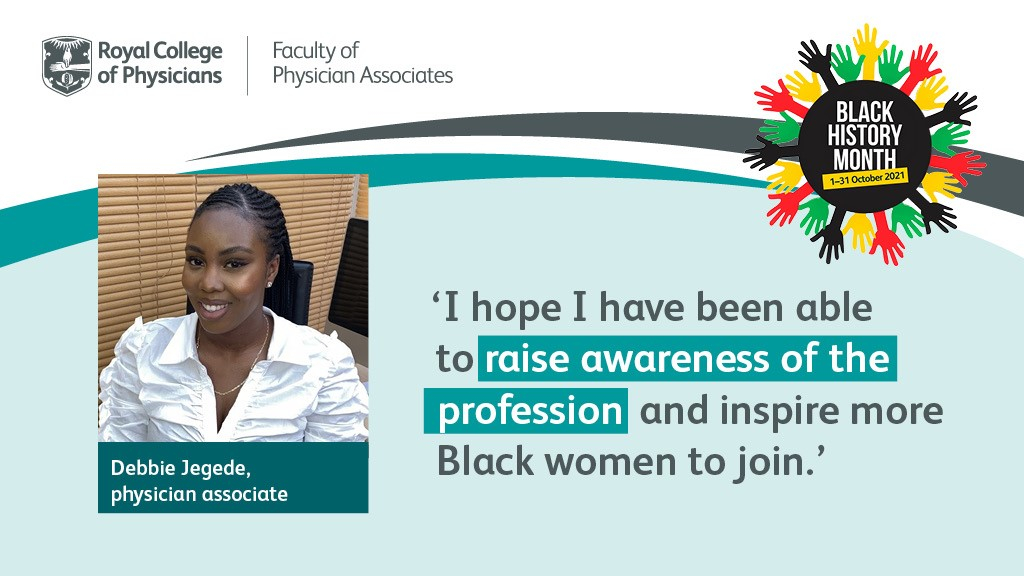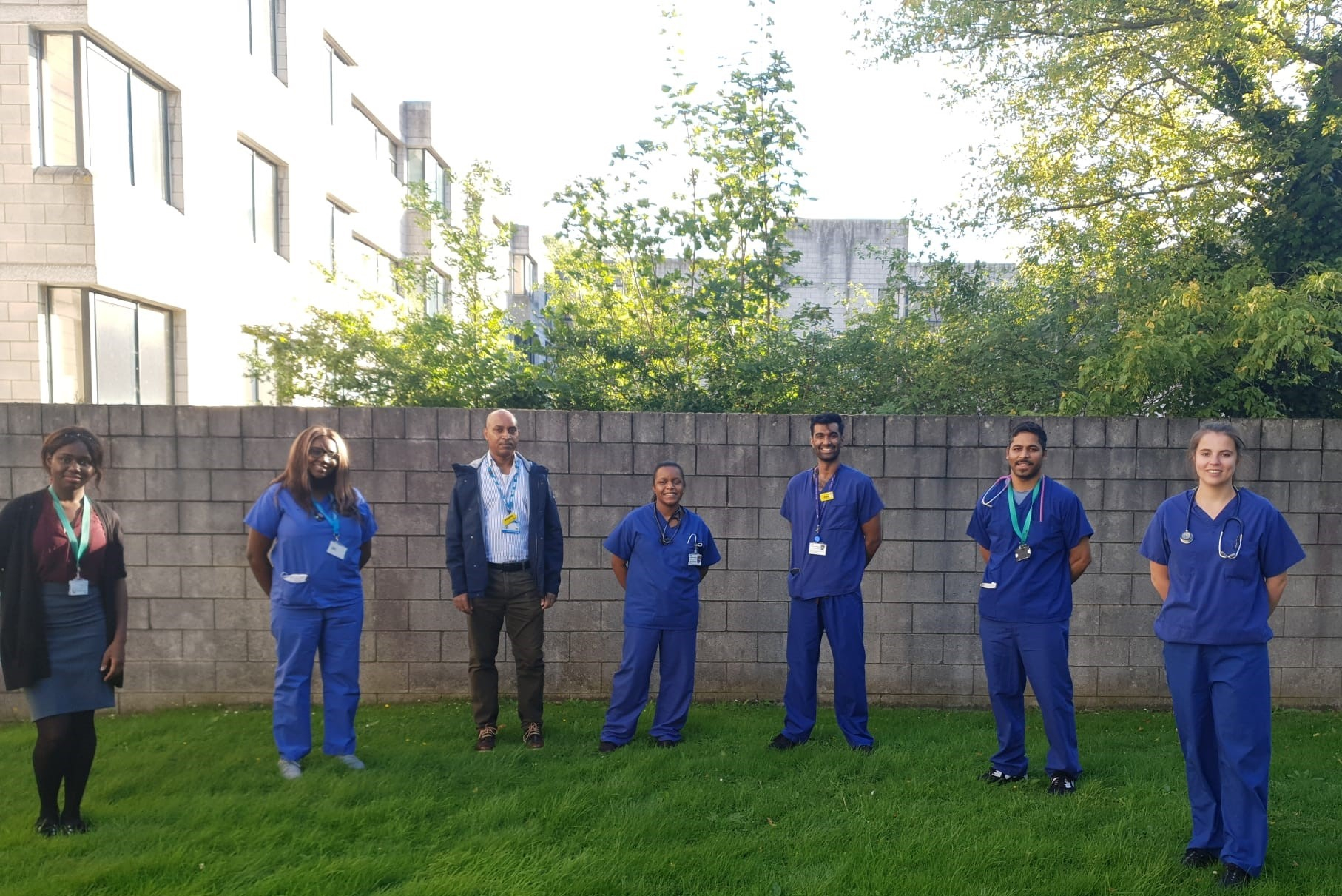Black History Month Diversity and Inclusion Delivery Group – a PAs experience
What does your role within the Diversity and Inclusion Delivery Group (DIDG) involve?
A consultant I worked alongside told me about the role as they felt it was well suited to my aspirations. This was in the same year that several controversial events occurred, including the death of George Floyd, which raised important racial concerns. I always thought that in the physician associate (PA) profession we could do more to encourage diversity and inclusion. I feel privileged to be part of a group striving for this.
The DIDG aims to work in alignment with recommendations from Ben Summerskill’s diversity and inclusion review. Within the delivery group we are divided into focus groups and I am allocated to the ‘showcasing diversity group.’ We have discussed ways to ensure that RCP buildings, conferences, events and media represent a diverse and inclusive workforce. I have sat on the FPA Board to help ensure equality and diversity are promoted in decision making. I have spoken about the profession at several events and have written articles for the Faculty of Physician Associates (FPA) and the Royal College of Physicians (RCP).
Can you share with us some of the positive outcomes from your experience of the DIDG so far? 
We have made a great start in widening the diversity among PAs, but there is still more work to be done. Comparing the census results from 2019 with 2020, there has been a 6% increase in the number of PAs who are men. The PA population, however, remains predominantly White women. Through the events that I have participated in I hope I have been able to raise more awareness of the profession and inspire more Black women to join. There has been more emphasis on ensuring a diverse speaker panel at RCP conferences and events and discussions around artwork and paintings in the RCP building.
Can you tell us about your background and experience of being a PA?
I was born in Greenwich District Hospital. My family is from Nigeria (West Africa) and they belong to the Yoruba tribe. I completed my biomedical science degree in 2015 and wasn’t sure what I wanted to do as a career. I took a gap year to travel and began working part time as a healthcare assistant . This helped me realise that I wanted to work in a patient-facing, caring role.
After some research, I came across the PA profession and it was a perfect fit. I have been a qualified PA for 3 years and it has been amazing. I have worked in respiratory medicine, acute medicine, acute frailty and currently I am practising in emergency medicine. I love the ability to switch between specialties and I will never get bored of being a PA – the profession has so much to offer.
What does diversity mean to you as a PA?
I work in emergency medicine at Guy’s and St Thomas’ NHS Foundation Trust. There are over 30 PAs at the trust, in both medical and surgical specialties. My PA colleagues come from a range of ethnic backgrounds and cultures. Working in central London also means I meet patients from a variety of different ethnic backgrounds and community groups. It is interesting to hear their stories. Most recently I have cared for Afghan refugees.
 What do you hope to achieve in the future?
What do you hope to achieve in the future?
I hope to continue raising awareness of the profession so that individuals from a diverse range of backgrounds can be educated. I am speaking at the upcoming FPA virtual conference in November. Hopefully, at this event I will be able to invite PAs to ask questions and describe how they feel about diversity and inclusion within the PA profession.
It is also important that we implement recommendations from the Summerskill diversity and inclusion review. This will help ensure the best patient care is delivered and that equality and diversity are promoted among RCP members. A diverse workforce also helps inspire others to pursue careers in healthcare. A huge step in the right direction has been representation from the Diversity and Inclusion team in different key working groups within the RCP. I am looking forward to future conferences and events becoming more inclusive.
